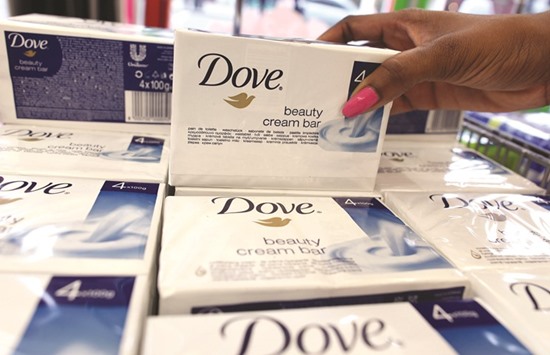Dutch food and cosmetics giant Unilever yesterday posted a 5.5% rise in net profit boosted by deodorants and ice cream sales, but warned “tough markets” are to continue in 2017.
The Rotterdam-based group clocked €5.5bn ($5.9bn) in net profit last year, while turnover came in at €52.7bn, down 1.0% year-on-year.
Unilever said it “delivered another good all-round performance, despite severe economic disruptions, particularly in India and Brazil, two of our largest markets.”
Brazil’s economic crisis and the withdrawal of India’s 1,000 (€13.6) and 500 rupee notes from circulation “presented significant additional headwinds,” group chief executive Paul Polman said in a statement.
Despite setbacks Unilever grew its personal care arm by 0.5%, including in the deodorant sector, driven by the continued success of dry sprays in North America and the Rexona Antibacterial spray, which now sells in more than 50 countries.
Lifebuoy soap, a well-known brand in Africa, also showed “strong growth across emerging markets driven by our handwashing campaign and further roll-outs into Kenya and Ethiopia.”
Its biggest personal care brand, Dove, also “had another good year,” Unilever said.
Ice cream sales again performed well, where Unilever’s Magnum Double range and Ben&Jerry’s clocked good sales as well as its best-selling US-based gelato maker Talenti.
Unilever bought Talenti in late 2014 and with the addition of new variants the business has grown 60% since.
Created in 1929, Unilever said it was now reshaping its portfolio by adding new businesses in fast-growing segments.
Last year it bought the US-based start-up Dollar Shave Club, which shook up markets with its online subscription model.
It also bought haircare products maker Living Proof, whose lotions and potions are billed as high-tech products based on scientific research from the Massachusetts Institute of Technology (MIT).
Unilever, which employs 173,000 people around the world, owns more than 400 brands including Dove, Knorr soups, Lipton, Magnum and Marmite.

.
